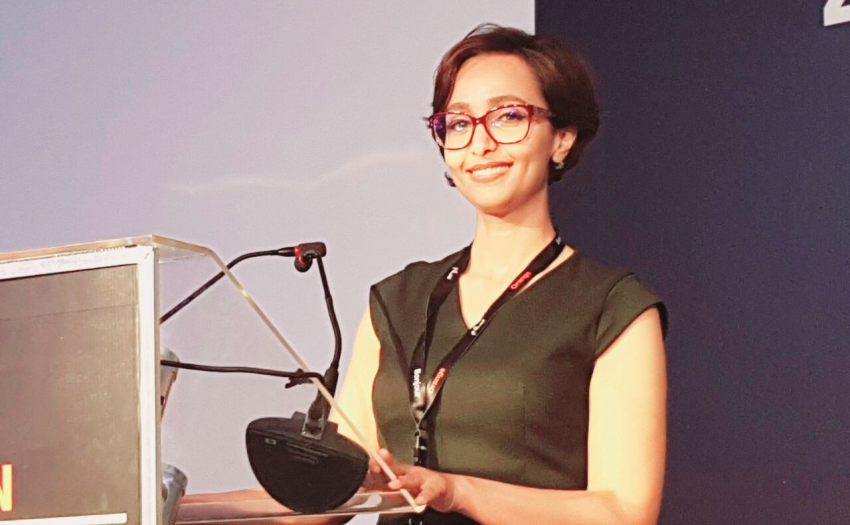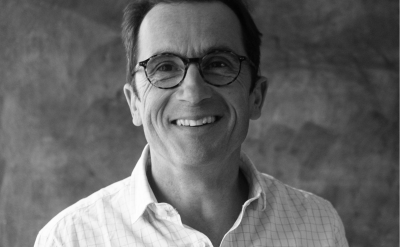News

Laila Benhassa (SK 2009) - “I consider myself an eternal apprentice”
Hailing from Morocco, Laila Benhassa chose to pursue her studies in France at SKEMA, a school with an excellent international reputation. She talks to us about her professional journey so far, the challenges she has faced, and the rich academic experience that set the tone for the rest of her career.
Can you tell us about your education and work experience?
After taking science A-levels, I attended a business school that is rather well-known here in Morocco: the National School of Business and Management (ENCG). Then, because I have always really liked finance, I wanted to gain more knowledge in that field, so at the time I joined the SKEMA BS Master in International Financial Management programme. I chose this school because it is very well-known internationally and I had heard very good things about it. Since graduating from SKEMA I have been working for Orange in Casablanca as a Wholesale Team Leader.
What stands out the most for you about your studies at SKEMA BS?
SKEMA delivers a really high standard of education. First of all, I was fortunate to have teachers who were excellent, because of the way they taught, the quality of their teaching materials, and their professionalism.
They were people who had worked in the corporate world, so were familiar with the reality on the ground. This was evident in their classes, which combined theory and practical application, something that is very important in a specialised master’s programme.
The programme was also highly technical and comprehensive. I did all the modules that were related to finance in some way. This is a programme that opens the doors to all finance-related professions (business analyst, trader, risk manager, etc.).
Through its teaching, SKEMA prepares its students for the professional world. This makes it a lot easier to compete in the job market and allows graduates to be operational from their very first day at a new company. Many of my classmates even made the leap to entrepreneurship right after graduating (that is actually one of the great advantages of SKEMA: it teaches its students to be real entrepreneurs).
Have you kept in touch with your classmates?
We regularly organise after-work events with the SKEMA Alumni network. They are really interesting and a good opportunity to meet alumni from other campuses and find out about their rich and varied backgrounds. It is also really heartwarming to see SKEMA alumni who have really made a name for themselves, with such a high level of maturity and such rich personal and professional backgrounds.
SKEMA also plans to draw on the experience of its alumni, and I have offered to run some seminars and to come and lecture in some of the course modules. I would really like to share my experience to give a little something back to the school after everything it has given me.
Can you tell us more about your job in Morocco?
I have been working for Orange Morocco since 2007. Over the years I have held several positions and I have really progressed in the company. I currently work in the management of national and international voice traffic through different partners called “carriers” - I guess you could say they are the wholesalers of international voice traffic. They take care of the transitions between incoming or outgoing calls between different international telcos.
I manage a team of two and we supervise the technical aspects of the traffic (system configurations, billing checks, detection of fraudulent traffic, etc.). As a manager, I also look after the sales negotiations with several carriers, to conclude international agreements. The aim of this is to secure our revenues and rein in operational expenditure.
In parallel, I am also involved in several professional and social projects. I am part of a volunteer-run project called “Robotics and Coding”, organised by Orange in partnership with the Ministry of Education. The aim of the project is to introduce coding lessons in several primary and secondary schools in Morocco and then organise a nationwide hackathon. I also participated in the Global Service project Jam in 2019, to encourage people all around the world to give entrepreneurship a go by getting a business idea off the ground in 48 hours.
I am also involved in an association of women volunteers through which we conduct outreach and community initiatives and help people in need.
What are the main challenges you have encountered in your career?
The job in itself is a challenge, because a lot of it is technical. So I needed to understand this aspect first and that was not easy, because I am not an engineer and nor am I that way inclined.
Next, I had to understand the way the business was managed around the world: the negotiations, the way dealings with the different carriers and operators were managed, etc. That was a real challenge and it changed the way I approach business, within an interlinked ecosystem. I went from an operational role to a professional managerial role with an international hat.
By nature, I love a challenge and I don’t think I could be in a job that didn’t present any. The challenge factor is actually what appealed to me when I was offered the position.
I consider myself an eternal apprentice. I love to learn and I always assume that I know nothing and that the person in front of me will always have something to teach me.
To me, this is very important in order to progress professionally. You have to know how to listen, ask questions, and learn from others, even those who report to you. To me, professionally speaking, about the worst thing you can be is too proud to learn. If you assume that you have something to learn from everyone, you will quickly be blown away by the amount of information and the level of knowledge you can acquire. To me, this is one of the keys to success and it is how I approach each new position.
Do you have any other advice for young SKEMA graduates?
So many young graduates turn down jobs that are not a perfect fit for their profile or don’t fully meet their expectations. But to me, that is not what is most important.
This is actually something I noticed in my first job. After finishing my studies in Morocco, I wanted to take the time to find the right position; not necessarily the one with the best pay or the most prestigious, but the job that would appeal to me the most.
In the meantime, I worked in a call centre doing customer service. You cannot imagine all the things that experience taught me: patience, active and respectful listening, stress management, empathy, time management and caller handling... All of these qualities are very important in the professional world.
It also taught me to ask the right questions and to admit it freely when I didn’t understand something.
So I think that all jobs have value and that you can get something positive from every situation.
My advice to young graduates is not to overlook the jobs you might consider as beneath you, at least early on. And once you do get a management position, it is important to remember your own experience as a subordinate. That will give you empathy and will enable you to be a good leader that helps their employees to evolve and become the best version of themselves.
Contact: Laila Benhassa (SK 2009)
Interview by lepetitjournal.com for SKEMA Alumni




